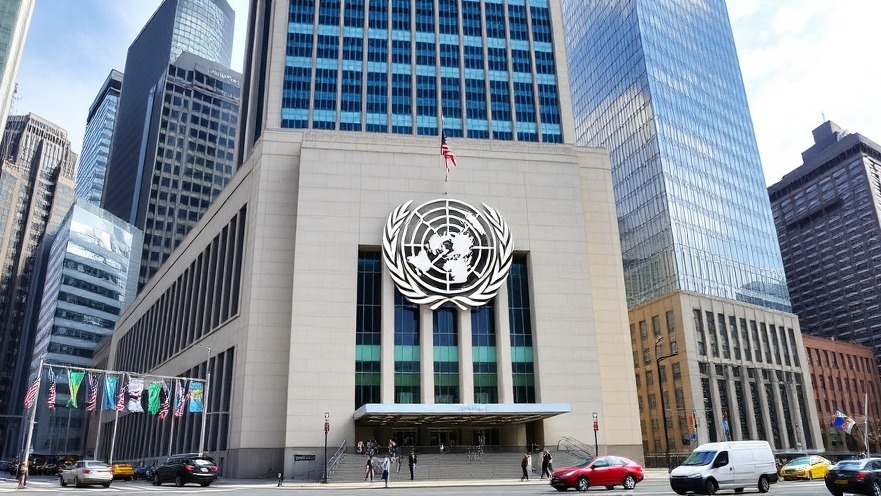
What Would Success Look Like for UN Leadership?
The discussion during Rick Scott's inquiry into UN Ambassador nominee Mike Waltz presents a compelling perspective on what he views as markers of success in his potential role. Waltz articulates a need for a UN that functions as a problem-solving entity, rather than merely a forum for debate. He cites significant diplomatic achievements that have arisen in recent months, highlighting the current administration's efforts in securing peace agreements and addressing longstanding conflicts like those in Ukraine and the Middle East. This push for a more effective UN could mark a pivotal shift in how global diplomacy is conducted, moving towards tangible results rather than theoretical discussions.
In 'Rick Scott Asks UN Ambassador Nominee Mike Waltz What 'Success' Would Look Like At End Of His Term,' the dialogue explores pivotal insights on the future of U.S. foreign relations in an evolving global landscape.
Understanding the Impact of Global Diplomacy
Waltz's mention of addressing nuclear tensions and border security highlights the intertwined relationship between U.S. foreign policy and national security. His approach focuses on collaboration with allies such as Sweden, drawing attention to the Arctic and economic partnerships that are vital in counteracting influences from nations like China and Russia. This is not just a matter of international relations; it's about protecting American interests on a global stage. The significance of these partnerships cannot be overstated as the world faces complex challenges from rogue states and climate change.
The Role of Empathy in Diplomacy
Furthermore, another nominee underscored the need for empathy and a fun atmosphere to anchor successful foreign relations. It emphasizes how the personal characteristics of leaders can profoundly affect diplomatic efficacy. By fostering positive relationships and understanding within the embassies they lead, nominees believe that they can achieve more than mere policy changes; they can create cultural and operational shifts that resonate within the diplomatic community.
What the Future Holds for U.S. Foreign Relations
As these nominations move forward in the Senate, it's crucial to consider what this means for the future of U.S. diplomacy. With the growing complexities of world affairs—ranging from nuclear dialogues to climate negotiations—this is a critical juncture for American leadership. The expressed goals and visions of these nominees will not only influence U.S.-led initiatives but also the U.S.'s standing in the international sphere. Their success will likely redefine American values in global conversations as well.
Parallels with Historical Context
History teaches us that significant foreign relations achievements are often the result of well-timed diplomacy, decisive leadership, and a willingness to address multifaceted challenges. If we look back at major diplomatic victories, like the Camp David Accords or the Paris Climate Agreement, it is evident that success depends on the interplay of personal connections among leaders, global crisis management, and strategic alliances. The current nominees appear cognizant of these lessons and seem prepared to act accordingly, suggesting a hopeful outlook for future diplomatic efforts.
Conclusion: The Call for Effective Diplomacy
Understanding the visions laid out by the prospective UN representatives opens the door for deeper discussions about the direction of U.S. foreign policy. Their commitment to resolving global issues collaboratively demonstrates an essential step toward acknowledging the interconnectedness of our world. As we move forward into what could be an era of renewed international cooperation, it's vital to remain informed on the developments surrounding these nominations. This will not only affect U.S. foreign policy but will also shape how America interacts with the world. Staying informed about these discussions could influence public perception and engagement in foreign affairs.
 Add Element
Add Element  Add Row
Add Row 



Write A Comment